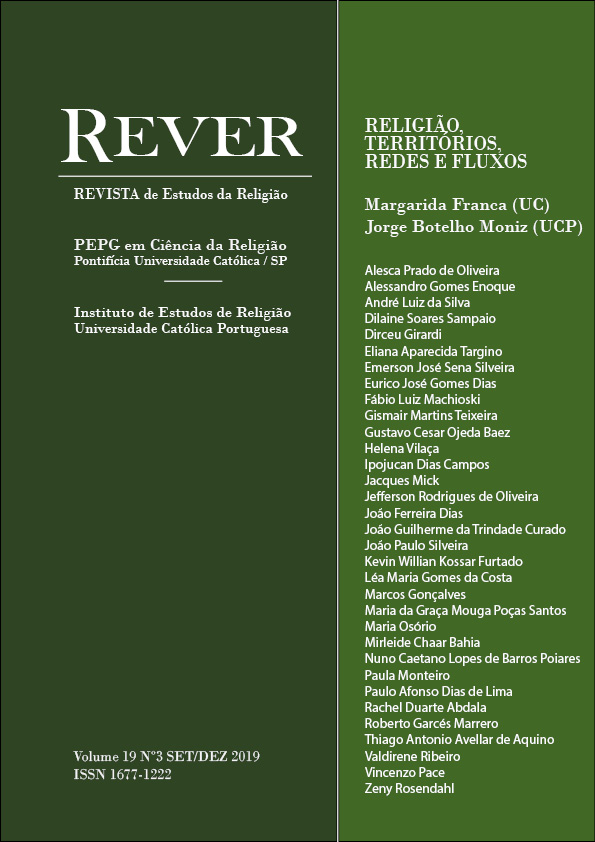The role of the religious discourse on the ethnocultural identity construction from the Italian immigrants in Curitiba at the end of the 19th century
DOI:
https://doi.org/10.23925/1677-1222.2019vol19i3a10Keywords:
Italian immigrants, Curitiba, Religion, Discourse, IdentityAbstract
In the present article, we pretend to discuss how and why religion managed to influence the construction process of the Italian immigrants’ ethnocultural identity that were installed in the region of Curitiba at the end of the 19th century. We aim to understand how the discourse religious was useful to the forging of an ethnic’s belonging feeling among the individuals of this foreigner’s specific group who settled in the surroundings of Paraná’s capital. With the intent of finding answers to this question, we present some definitions and ideas about religion and identity, which were elaborated by the sociologists Peter Berger, Pierre Bourdieu, and Denys Cuche, as also from the philologist Paul Valadier. Such concepts, as for example, the ones of symbolic power and religious habitus, worked on analyzing the father Pietro Colbacchini’s discourse, a Catholic priest who organized the Italian immigrants’ religious practice in Curitiba and thus comprehended the relevance which religion assumed near to the mentioned process of sociocultural identification.
Downloads
Published
How to Cite
Issue
Section
License
Authors who publish in this journal agree with the following terms:- Authors retain copyright, but grant the journal the right of first publication, with the work simultaneously licensed under the Creative Commons BY-NC License.
- Authors are authorized to assume additional contracts separately, for non-exclusive distribution of the work published in this journal (e.g., publishing in an institutional repository or as a book chapter), as long as with acknowledgment of authorship and first publication in this journal.


